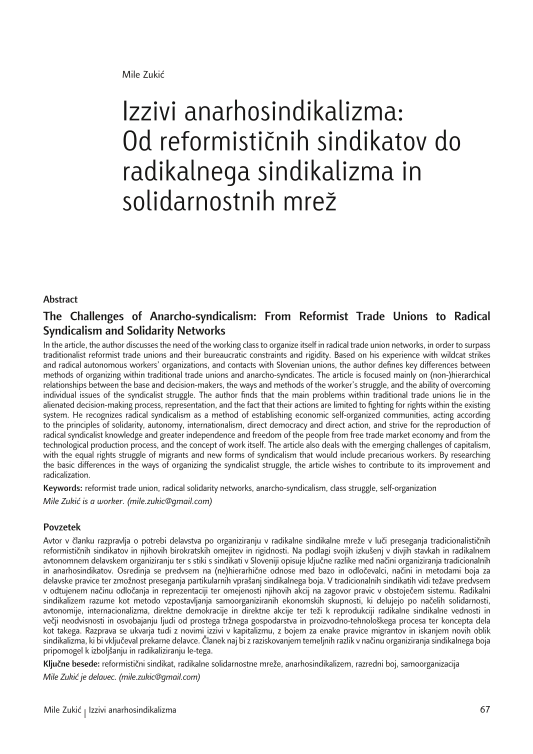In the article, the author discusses the need of the working class to organize itself in radical trade union networks, in order to surpass traditionalist reformist trade unions and their bureaucratic constraints and rigidity. Based on his experience with wildcat strikes and radical autonomous workers’ organizations, and contacts with Slovenian unions, the author defines key differences between methods of organizing within traditional trade unions and anarcho-syndicates. The article is focused mainly on (non-)hierarchical relationships between the base and decision-makers, the ways and methods of the worker’s struggle, and the ability of overcoming individual issues of the syndicalist struggle. The author finds that the main problems within traditional trade unions lie in the alienated decision-making process, representation, and the fact that their actions are limited to fighting for rights within the existing system. He recognizes radical syndicalism as a method of establishing economic self-organized communities, acting according to the principles of solidarity, autonomy, internationalism, direct democracy and direct action, and strive for the reproduction of radical syndicalist knowledge and greater independence and freedom of the people from free trade market economy and from the technological production process, and the concept of work itself. The article also deals with the emerging challenges of capitalism, with the equal rights struggle of migrants and new forms of syndicalism that would include precarious workers. By researching the basic differences in the ways of organizing the syndicalist struggle, the article wishes to contribute to its improvement and radicalization.




